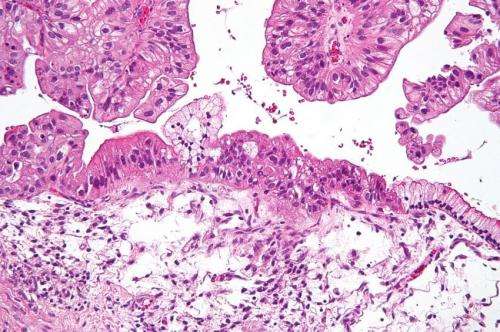New genetic study reveals why some women get aggressive breast and ovarian cancer

In a recent study published in JAMA Oncology, investigators from the University of Bergen, in collaboration with the Women's Health Initiative (WHI) study in the U.S., reported epigenetic gene silencing in normal tissue to be a predictive factor for triple-negative breast cancer (TNBC) as well as high-grade serous ovarian cancer (HGSOC). These are aggressive tumor types associated with a serious prognosis.
The breast cancer type-1 gene (BRCA1) is the gene most mutated in families with inherited breast and ovarian cancer. In the study, researchers found that women with low-level mosaic methylation of BRCA1 had a 2.5-fold increased risk of TNBC and 1.8-fold increased risk of HGSOC.
Professor Lønning, the investigator leading the study, commented: "These findings may have significant implications to our understanding of how a substantial fraction of these cancers originate. Previously, we detected similar low-level mosaic methylation of BRCA1 in umbilical blood from newborns, indicating that such methylation may develop even before birth.
"In our present study, performed in collaboration with the WHI, we found BRCA1 methylation in blood samples collected many years prior to the cancer diagnosis to be associated with an elevated risk for TNBC as well as HGSOC. For the first time, this confirms such methylation to be a cancer risk factor. The fact such methylation occurs at the embryonic stage means we need to find out the reason why this happens, whether it may be related to environmental influence or other factors. Also, it raises the provoking question of whether similar methylation may affect other known cancer risk genes as well and, if so, be a triggering factor to other cancer forms."
More information: Per E. Lønning et al, Constitutional BRCA1 Methylation and Risk of Incident Triple-Negative Breast Cancer and High-grade Serous Ovarian Cancer, JAMA Oncology (2022). DOI: 10.1001/jamaoncol.2022.3846





















